On March 26, 2019 the European Parliament approved the amendment of the European Directive on copyright, including the controversial Article 13. But, what exactly is this article about? Here we explain it graphically (or at least, we try).
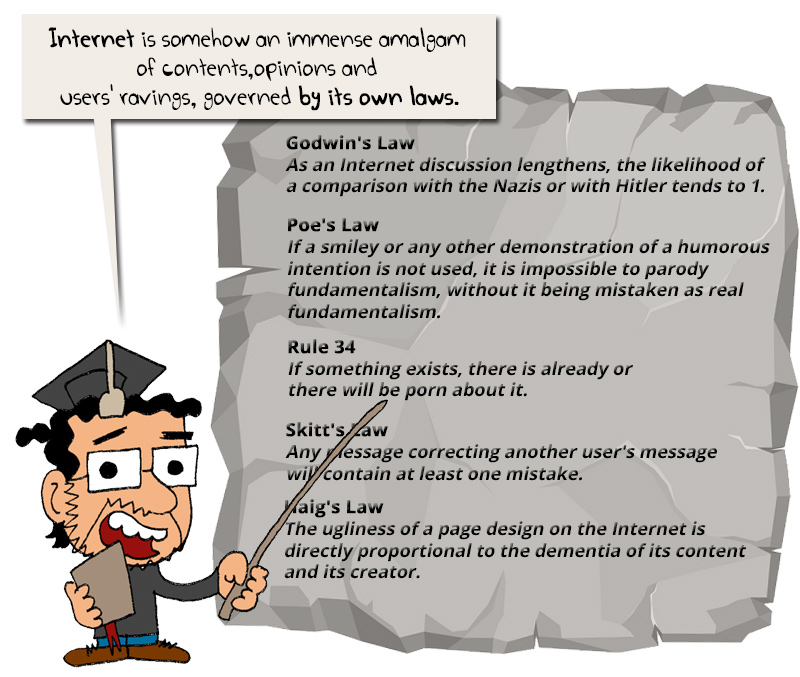
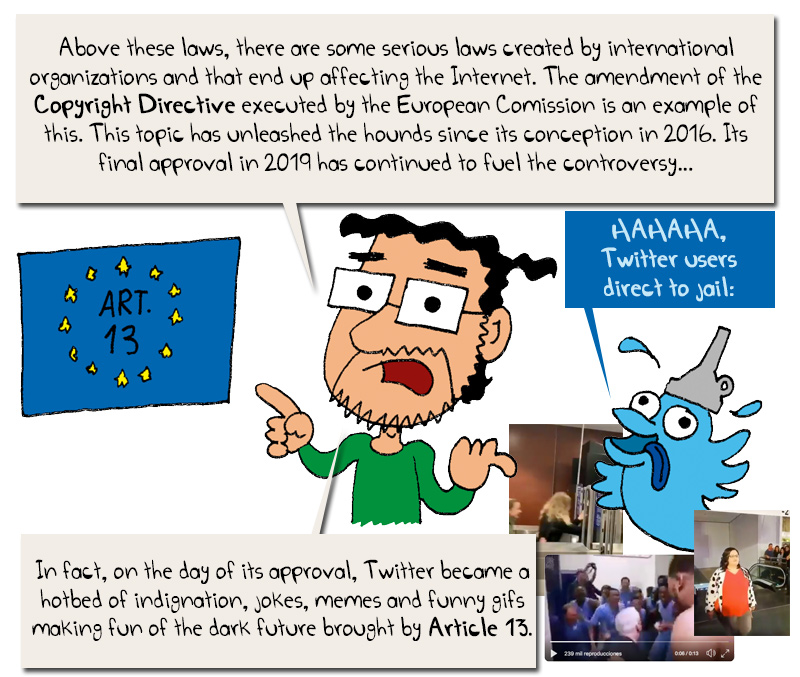
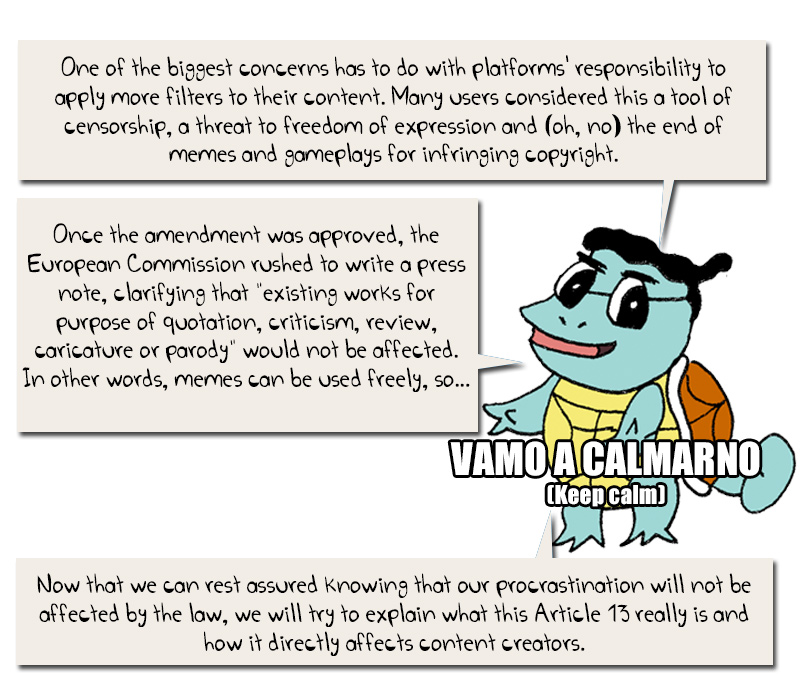
Where does Article 13 come from?
The European Union has been preparing the amendment of the copyright directive since 2016. A series of media, such as the Agence France-Presse or Europa Press, have supported this initiative stating for the defense of high-quality journalism and the fight against misinformation.
Article 13 (which is now named Article 17, after several amendments over the last months) forces large content platforms (such as Google, YouTube, Wikipedia, Instagram or Twitter) to sign licensing agreements with copyright holders: artists, musicians, journalists… What does this imply? All platforms must implement strong filters to ensure that this content does not infringe copyright.
Among the many impacts of this amendment, one headline stood out in the social networks: the elimination of memes, created mostly with fragments of films, series, works of art, comics… A low blow to the Internet community, and just the tip of the iceberg of an uncertain future in terms of freedom of expression. In addition, creative freedom on the Internet would be strongly committed to this measure. The responsibility for the content falls on the platform, so they must comply with the law to the letter to avoid paying millions in fines…
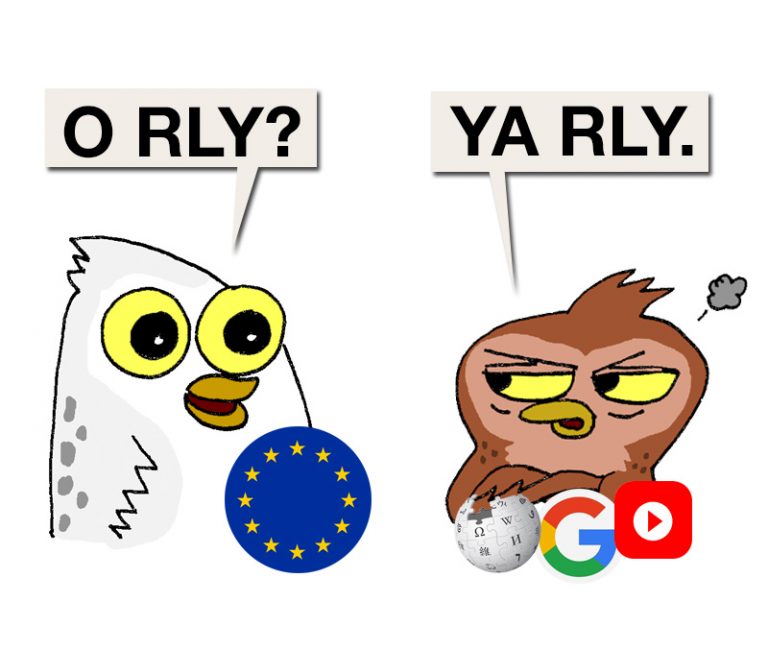
What does Article 13 imply?
As we said before, this article is a real headache for large platforms and for their users. Since content platforms would have to sign agreements with all the creators and look closely at the type of content they upload, they must rethink the revision and publication system. On the creators’ side, they can continue sharing copyrighted content under the premise of “criticism, review or parody”, althought this will be more difficult when it comes to creating and publishing content that includes copyrighted material. The most notable example are the YouTube gameplays: when dealing with registered video games, these gamers’ sessions may not be shared online.
These large platforms will be affected because the amendment oblige the revision of all the published content so far, in order not to pay millions in fines. In addition, they will have to apply more and larger filters to ensure that the content they publish does not violate the law.
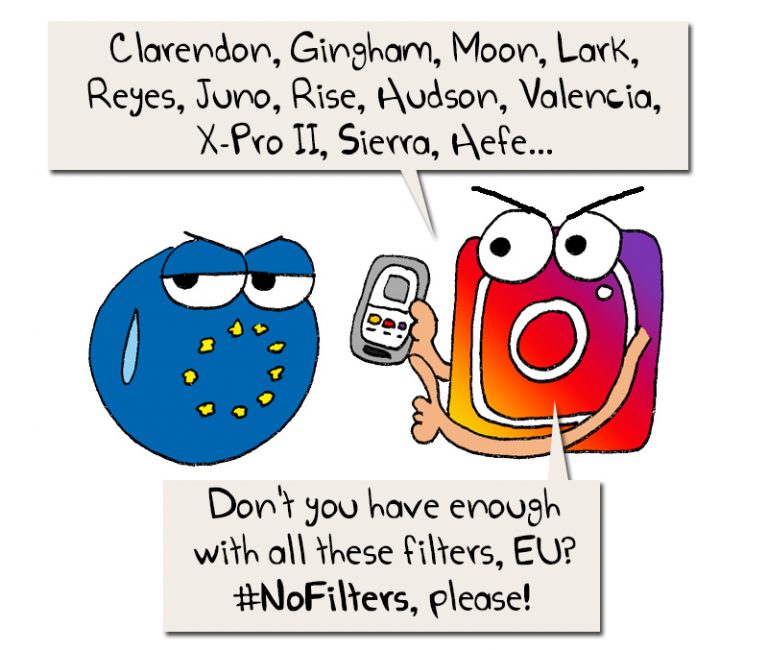
So, what happens now?
Once the storm of funny reactions on Twitter has passed, and blogs have taken advantage of the pulling power of the trend (yes, here we are too, so what?), we encounter a moment of uncertainty. The application of this law is not immediate – all member countries of the EU will have a period of two years to adapt to this regulation. Large platforms have some scope to rethink the way in which their users share their content. A very interesting reflection thrown by this regulation involves the incompatibility with each state’s legislation, since prior censorship is not contemplated in many constitutions.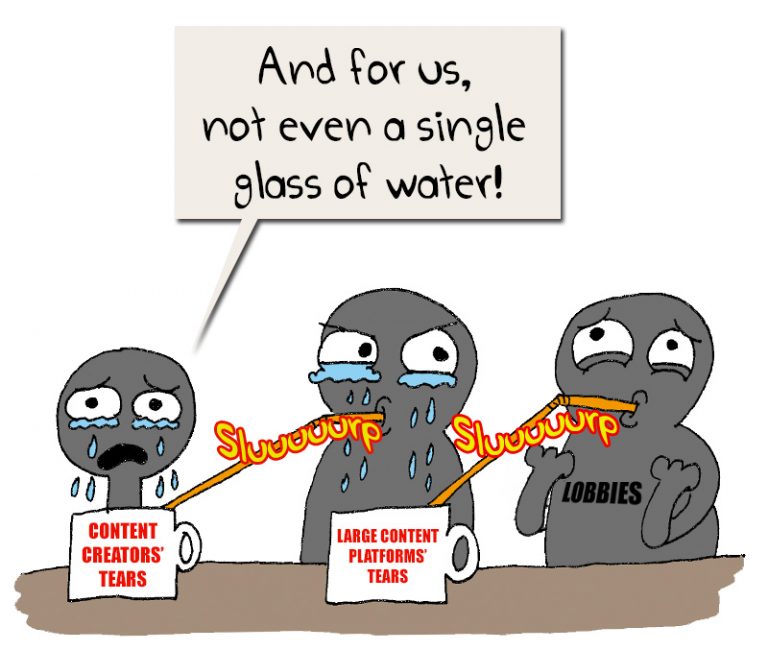
Obviously, there are many more consequences arising from this amendment and other articles that arouse even more controversy than Article 13. If you want to continue with this debate, expand the information or correct any data that you consider wrong, let us know in the comment section below.
Sources consulted
- LinuxAdictos – ¿Cómo afectará a Internet el Artículo 13 aprobado por el Europarlamento?
- Hardwaresfera – Google ya prepara cambios drásticos para adaptarse al Artículo 13 de la Unión Europea
- La Vanguardia – La UE sancionará a las redes sociales si sus usuarios infringen los derechos de autor
- ADSLZone – Aprobado el artículo 13 en la UE: ¿cómo cambia Internet a partir de hoy?
- European Comission – Copyright reform: the Commission welcomes European Parliament’s vote in favour of modernised rules fit for digital age
